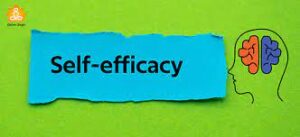How often do you self-doubt? Does it break your self-confidence?
What happens when self-doubt knocks down self-esteem and shapes a poor self-concept??
It gives rise to a toxic cycle that perpetuates a harmful narrative. This narrative can influence various aspects of one’s life. Self-doubt and its frequency is subjective and it definitely varies from person to person even though it’s a common human experience. It becomes detrimental when not addressed at the right time. Self-doubt is like a persistent self – defeating voice that questions one’s abilities, decisions, and self-worth. It often shows up during tough times or when we compare ourselves to others. If left unchecked, self-doubt can become a big hurdle, gradually eroding our confidence and leading to a continuous state of low self-esteem.
Individuals who regularly grapple with self-doubt may find their self-confidence shattered, hindering their ability to take risks, make decisions, and pursue goals with conviction.
The relationship between self-doubt, self-esteem, and self-concept is intricate and complex but they go hand in hand. Self-esteem is the overall opinion we have of ourselves. With the interplay of persistent self-doubt, it can crumble. The uprooting of self-esteem by self-doubt erodes the sense of self which in turn, influences our self-concept. A poor self-concept reflects a distorted self-image, influenced by the negative lens of self-doubt.
Low self -esteem and a diminished self-belief often finds its roots in the soil of self-doubt. The continuous questioning and doubting towards oneself paired with the fear of failure reinforces a negative self-perception. It motivates the inner critic to establish and create a foundation for a poor and distorted self-concept coupled with insistent doubting.
To improve our well-being, it’s crucial to recognize and deal with self-doubt. This involves being more aware of when it surfaces, recognizing and changing negative thoughts into positive ones, and practicing self-compassion. Building a strong self-concept means actively countering self-doubt and working towards a more accurate and positive self-perception.
Understanding and addressing self-doubt is crucial for fostering a positive self-concept and rebuilding self-esteem. Breaking the cycle of self-doubt requires consistent effort and a commitment to nurturing a positive self-concept. By actively addressing and challenging self-doubt, individuals can rebuild their self-esteem and cultivate a healthier, more resilient sense of self. Self – talk, self – comfort, work on Compare & Despair strategy, focus on I Can more than I Can’t. You may be the Short finger still you are needed to complete the hand.





